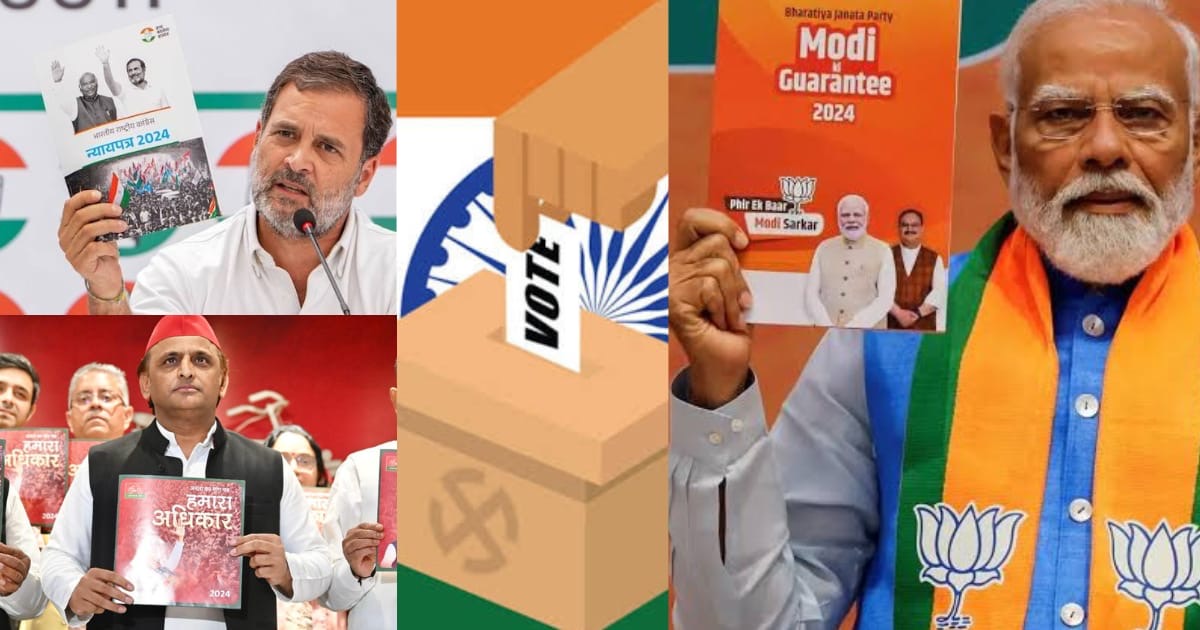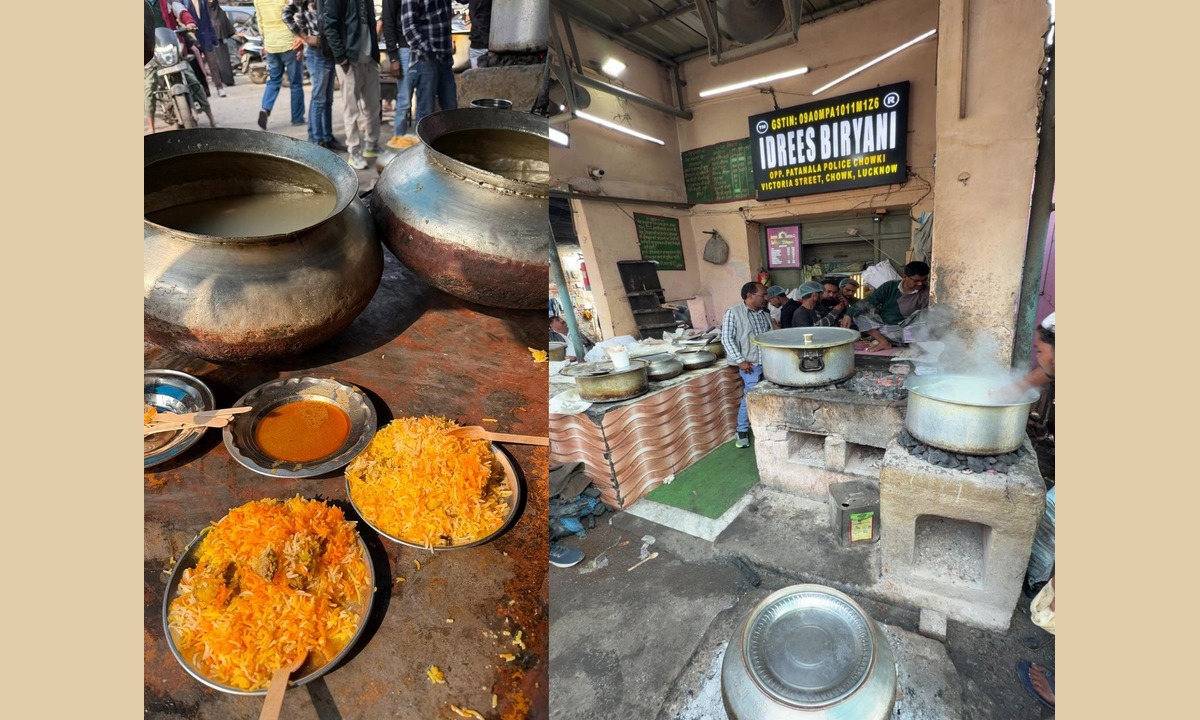
Rhetoric vs Reality: Ahead of Lok Sabha Polls, Manifestos Ensue Battle of Ideas
The expression "give it to me in writing" is often used when individuals seek something more tangible than mere spoken words. The political arena is no different. While politicians may make numerous promises at rallies, the commitments outlined in their party manifestos serve as the fodder for substantial political discourse.
Earlier this month, all major parties, both national and regional, unveiled their respective manifestos. While the Congress has made an assertive effort to sway the odds in its favour through its "Nyay Patra", the incumbent BJP relies on Prime Minister Narendra Modi's "Viksit Bharat" vision to appeal to voters.
'Promise' Play
Just as power play overs can determine victory or defeat in T20 cricket matches, election manifestos can significantly influence voters' decisions. Recognising the importance of these electoral promises, all parties endeavour to put their best foot forward.
Elucidating his party's vision document, Abdul Hafiz Gandhi, a senior leader of the Samajwadi Party from Uttar Pradesh, said, "Our manifesto pledges benefits for all sections of society. We propose to raise the daily wage under MGNREGA to Rs 450, while also extending the number of workdays from 100 to 150. For farmers, we commit to implementing MSP as per the Swaminathan Commission recommendations. Additionally, we plan to establish a Kisan Aayog to address farmers' concerns, ensuring that cane farmers' dues are cleared within 15 days."
He continued, "Furthermore, we aim to provide Rs 5,000 per month to women holding BPL cards, offer insurance coverage to labourers, and take concrete measures to prevent exam paper leaks. We intend to reinstate the old pension scheme for the elderly and enforce a 37% reservation for women in government jobs. To support students, we will distribute laptops and provide free data. Lastly, we pledge to repeal the Agniveer scheme."
Addressing concerns about the financial viability of these promises, the SP leader said, "Once the INDIA bloc assumes office, we will develop a common minimum programme through consensus and fulfill our commitments. Before questioning the financial feasibility of our promises, one should ask about the Prime Minister's pledges, such as free ration distribution to 80 crore people. The BJP's manifesto is merely rhetoric. They promised bullet trains, 2 crore jobs, and Rs 15 lakh in every bank account. How many of these promises have been fulfilled?"
On the other hand, outlining BJP's manifesto titled "Modi Ki Guarantee," Abhishek Tandon, Yuva Abhiyaan in-charge for BJP Delhi, said, "Our manifesto embodies the principles of 'Vikas, Vishwaas, and Vichaar.' It not only serves as a report card for the past 10 years but also outlines a blueprint for the country's development over the next five years. Aligned with Prime Minister Narendra Modi's vision, our manifesto aims for 'Viksit Bharat by 2047'. From infrastructure to social security, and from entrepreneurship to job creation, we have comprehensively addressed every aspect."
Responding to opposition allegations regarding the necessity of distributing free ration to 80 crore people despite India's rapid development, Tandon said, "The free ration scheme was initiated during the Covid crisis, an unprecedented global challenge. At the time, the government needed to show people that they were not alone. Over the years, we all have observed that the scheme is financially viable and does not impede our economic prospects. In fact, with a growth rate exceeding 8% and consistent increases in capital expenditure by the Centre, our nation's progress remains uninterrupted. The opposition lacks credibility to question the economic rationale behind our promises. We have always prioritised the nation's growth."
Manifesto Matters
Discussing the economic implications of these manifestos, a senior economist, who requested anonymity, said, "It is evident that the Congress' manifesto leans towards populism, whereas the BJP manifesto prioritizes policy continuity. From an economic standpoint, the BJP's manifesto is likely to bolster business sentiment in the country. UBS Securities has published a detailed report highlighting how the promises made by Congress could lead to a higher fiscal deficit."
Nevertheless, some political observers argue that these manifestos have minimal influence on voters in rural areas. They further contend that PM Modi himself is the most significant polarising figure, particularly in urban India. Those who support him will vote for him regardless of the circumstances, while those who oppose him will not vote for him regardless of the development-centric nature of his electoral pitch. Many citizens never even review manifestos, they added.
Offering a contrasting perspective, senior political expert Marinder Mishra said, "In a democracy, political party manifestos hold significant importance. They inform the public about the party's policies and future plans. A party's stance on governance issues, including finance and defense, can be discerned from its manifesto. Manifestos play a crucial role in guiding voters on whom to vote for and why. Back in the 1970s, JP Narayan discussed voters' written rights, which, at that time, served as a form of manifesto."
While the public's mandate will be revealed on June 4, the impact of manifestos on poll results is expected to continue eliciting polarising reactions -- a trend that is likely to hold until parties in power walk the talk.
Popular Categories
Read More Articles
Travel and Tourism
Travel to Thailand gets costlier: International passenger service fee to jump 53% from June by Awadh 360° Desk February 22, 2026Travel and Tourism
Thailand Extends Visa-Free Stay for Indians to 60 Days, Allows 30-Day Extension by Awadh 360° Desk February 19, 2026Travel and Tourism
Lucknow or Zaike: A City Remembered Through Taste by Mohammed Syed Zaid February 11, 2026Business
What's Up With WhatsApp? by Prateek Shukla February 9, 2026



